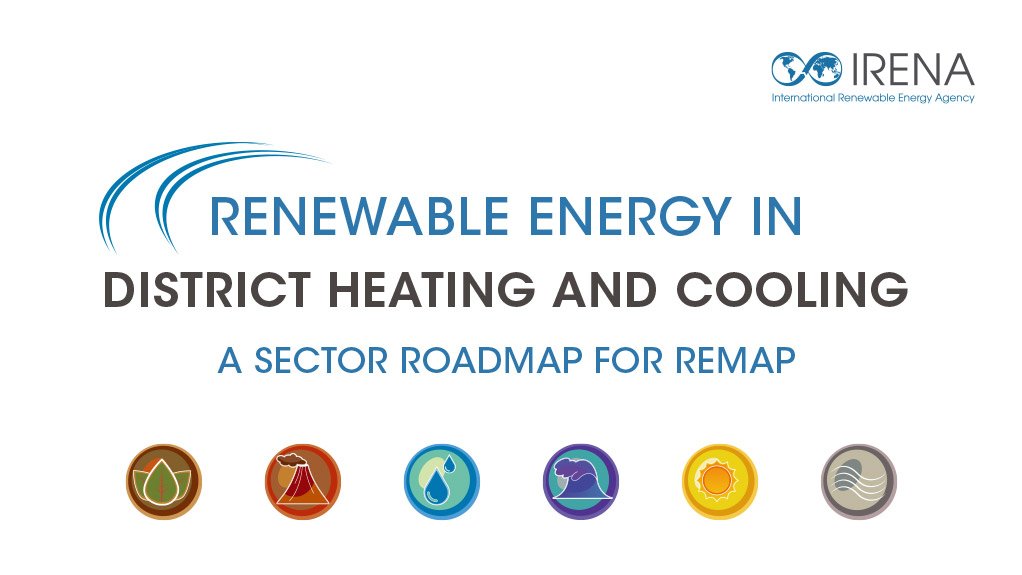- Bookmark and Share Bookmark and Share Renewable energy in district heating and cooling: A sector roadmap for REmap2.45 MB
District heating and cooling (DHC) combined with renewable energy sources can help meet rising urban energy needs, improve efficiency, reduce emissions and improve local air quality. Although currently dominated by fossil fuels such as coal and gas, DHC systems can be upgraded, or new networks created, to use solid biofuel, solar and geothermal energy technologies.
Depending on local conditions, renewable-based DHC brings a range of benefits, including increased energy security, improved health and reduced climate impact.
To date, only a few countries have taken advantage of their renewable resource potential for DHC or created policies to promote further uptake. Sweden and Switzerland have started promoting renewable-based district heating,while Denmark – with ambitious decarbonisation policies –already uses high shares. Many cities and regions envisage a growing role for district in their energy plans; some are also looking increasingly at district cooling.
Accelerating the rise of renewable-based DHC requires action in key areas.
National policy makers need to:
- Encourage and facilitate renewable energy adoption in the DHC sector.
- Expand renewable resource assessments and promote demonstration projects for emerging technologies.
City policy makers need to:
- Develop an understanding of the local renewable resource base, identify demand patterns for heating and cooling, and explore synergies with existing infrastructure.
- Engage with a broad set of stakeholders.
As this REmap sector study from the International Renewable Energy Agency (IRENA) shows, renewables could feasibly supply more than one fifth of the energy needed for DHC worldwide. But to drive the transition, policy makers need to fully understand the costs, benefits and actual potential for renewable-based DHC.
This report examines renewable DHC potential up to 2030, based on three main technology pathways. The baseline “Reference Case” builds on current national energy plans in nine countries. The “REmap” case includes rapid scale-up within planned DHC capacity. The third pathway, “Structural Shift”, assumes expanded DHC capacity, with new networks fed entirely by renewables.
Supplementary case studies highlight real-world DHC projects using renewables. These include solar heating in Austria and Germany; Geothermal heat in Italy and Germany; Biomass coal-conversion and co-firing in Denmark, Germany, Lithuania and Sweden; standalone biomass in Germany, the UK and the US (Minnesota); solar cooling in Singapore, the United Arab Emirates and the US (Arizona); natural water cooling in Bahrain, France and Switzerland; and power-to-heat in China, Denmark and Germany.
Report by Irena
EMAIL THIS ARTICLE SAVE THIS ARTICLE ARTICLE ENQUIRY
To subscribe email subscriptions@creamermedia.co.za or click here
To advertise email advertising@creamermedia.co.za or click here











